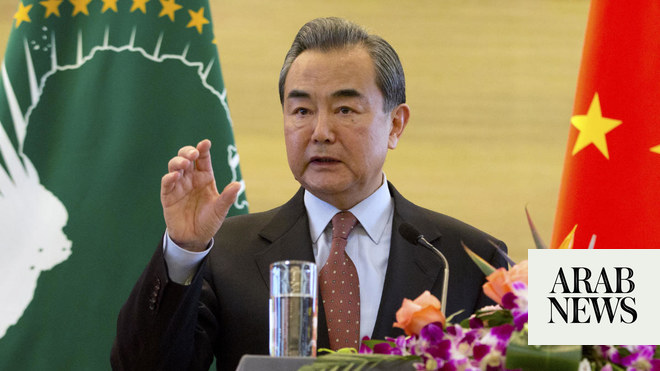
Some variants have been found to spread more easily but do not appear to be any more deadly
Variants that are more contagious mean the world could face an even tougher year, expert warns
NEW YORK: Researchers worldwide must make greater efforts to work together to quickly identify new variants of SARS-CoV-2, the coronavirus that causes COVID-19.
The plea came during a virtual gathering of more than 1,750 scientists from 124 countries, which was convened by the World Health Organization (WHO) on Wednesday to discuss critical knowledge gaps and research priorities relating to emerging mutations of the virus.
Since the start of the pandemic WHO has been routinely investigating and evaluating whether new variants spread more easily, increase the severity of the disease, or reduce the effectiveness of treatments and vaccines.
In addition to urging scientists around the world to closely monitor emerging variants, the agency urged them to share virus and serum samples to ensure that critical research is carried out as quickly as possible.
“Our collective goal is to get ahead of the game and have a global mechanism to quickly identify and study variants of concern, and understand their implications for disease-control efforts,” said Ana Maria Henao Restrepo, the head of WHO’s R&D Blueprint. This was activated during the pandemic to help improve coordination between scientists and global health professionals, and accelerate research into the disease.
Noting the important role of research in the early detection of new variants, the scientists also called for enhanced coordination across disciplines through the integration of research into variants with global research and innovation efforts.
Mutation of viruses over time is normal, WHO experts said, but the more the virus spreads, the more rapid the process is likely to be.
Some variants of the coronavirus that have emerged recently — such as those identified in the UK, South Africa and Japan — have been found to be significantly more contagious than other versions. However, there is no evidence that they are any more deadly or reduce the effectiveness of the vaccines that have been developed and approved for use worldwide.
Genomic sequencing — the process of determining the DNA sequence of the virus — has also been critical in identifying and responding to new variants, and WHO called on the global research community to prioritize this research.
“So far an astounding 350,000 sequences have been publicly shared but most come from just a handful of countries,” said Maria Van Kerkhove, WHO’s technical lead for COVID-19.
“Improving the geographic coverage of sequencing is critical for the world to have eyes and ears on changes to the virus.”
The scientists highlighted the importance of national data platforms in the documentation of the kind of critical clinical, epidemiological and virus data that helps to detect and assess new SARS-CoV-2 variants.
Meanwhile Mike Ryan, executive director of WHO’s Health Emergencies Program, warned that the coming year could be tougher than the last because of the high contagion rates of new variants of the virus.
Speaking during another virtual event he said: “Certainly in the northern hemisphere, particularly in Europe and North America, we have seen that sort of perfect storm of the season: coldness, people going inside, increased social mixing and a combination of factors that have driven increased transmission in many, many countries.”
The global death toll as a result of COVID-19 is nearing 2 million. More than 90 million people worldwide have been infected by the coronavirus.
“I worry that we will remain in this pattern of peak and trough and peak and trough — and we can do better,” Van Kerkhove said.
She urged people to continue to adhere to social distancing guidelines, adding: “The further, the better … but make sure that you keep that distance from people outside your immediate household.”











